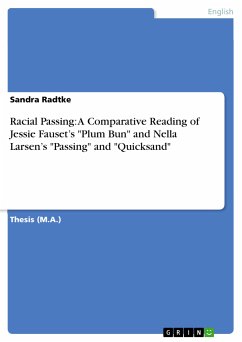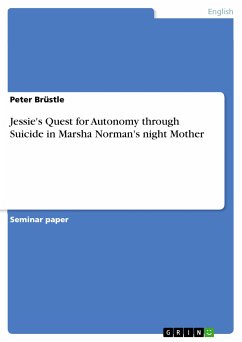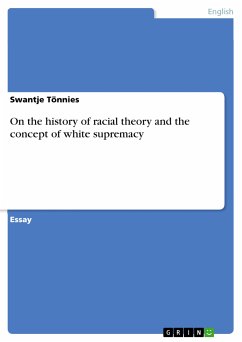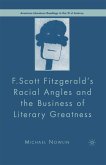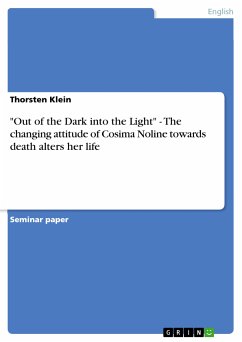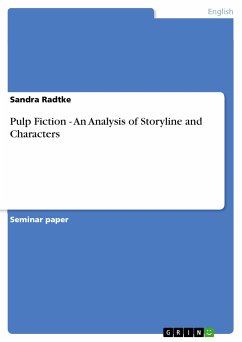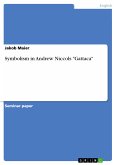Thesis (M.A.) from the year 2006 in the subject American Studies - Literature, grade: 1,0, Dresden Technical University, language: English, abstract: In the following, I would like to give a brief abstract of my thesis. Chiefly, I want to explore three major novels of the Harlem Renaissance - Nella Larsen’s Quicksand (1928) and Passing (1929) as well as Jessie Fauset’s Plum Bun (1929). As all of them deal with racial passing, this issue will be the topic of the first part in order to provide an insight into the matter. The main focus will be on black-to-white passing, which is primarily a cultural phenomenon of the United States. After a definition of the term with the help of several basic typologies, I would like to proceed to concomitants like secrecy, the question of guilt and the white people’s view on passing. Subsequently, the passer ought to be the focus of closer examination, followed by an exploration of laws and folk beliefs evolving around the mulatto as the typical passing figure. After this theoretical embedding, I will take a closer look at passing in literature including an analysis of the emergence of the phenomenon as a literary genre. Additionally, the passing figure in literature, the “tragic mulatto”, is to be investigated. Concluding, a chapter on other forms of passing shall be added for the sake of completeness. In the second part, these theoretical cognitions are supposed to be employed to find an approach to the novels that are going to be examined with regard to the matters that evolve around passing, i.e. the secrecy involved, the return home and the tragic death of the heroine. Juda Bennett’s list of similarities among passing novels is supposed to provide a framework here. Afterwards, other forms of passing depicted in the novels will come to the fore including an examination of racism in connection with sexism.
Bitte wählen Sie Ihr Anliegen aus.
Rechnungen
Retourenschein anfordern
Bestellstatus
Storno

